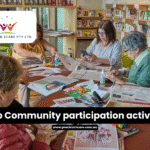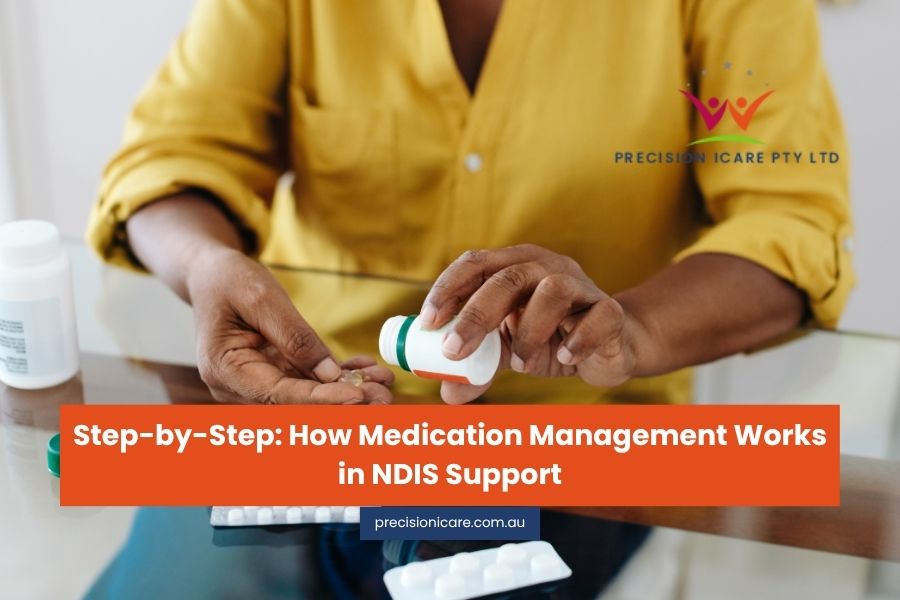Adults with disabilities love group activities as a form of fun and friendship making, as well as learning. They also make the participants more confident and independent as they enjoy socializing. It can be of great value to arrange simple and entertaining events for carers, family members, and support coordinators. The organized activities can be …
Adults with disabilities love group activities as a form of fun and friendship making, as well as learning. They also make the participants more confident and independent as they enjoy socializing.
It can be of great value to arrange simple and entertaining events for carers, family members, and support coordinators. The organized activities can be adapted to various skills and motivate all people to participate.
Why Group Activities Matter
Engaging in group activities for adults with disabilities offers numerous benefits:
- Socialization: The respondents make friends and decrease their sense of isolation.
- Skill development: There is the development of communication, coordination, and problem-solving skills.
- Physical condition: Exercises enhance mobility, equilibrium and overall nimbleness.
- Mental wellbeing: Fun and enjoyable activities help to decrease stress and improve mood.
Regular group interaction also makes adults with disabilities feel confident and empowered and enhances their quality of life.
Types of Fun Group Activities
Regular group interaction also makes adults with disabilities feel confident and empowered and enhances their quality of life.
1. Arts and Crafts
Arts and crafts provide a flexible means of entertaining the participants. Adults can express themselves through painting, drawing, pottery, and DIY craft but they use fine motor skills and patience to do so.
Such activities may be themed, seasonal or collaborative encouraging teamwork and promoting the participants to make their creations available to the group.
2. Music and Dance
Music and dancing are amusing and curative. Coordination, rhythm, and expression of the emotion can be enhanced by singing, playing instruments, and dancing as a group.
The frequent music and dance events introduce an energetic and interactive atmosphere in which the participants will be able to socialize with each other and relish the power of motion and imagination.
3. Recreational and Physical Activities
Adapted sports, yoga or outdoor walks are physical group activities that facilitate physical fitness and mobility. These will be activities that can be modified to the skills of the participants to be safe and yet stimulate movement.
Teamwork, communication, and strategy can also be learned through recreational activities and therefore recreational activities are the best activities to impart social skills and confidence to a group.
4. Games and Puzzles
Board games, playing cards, and working on puzzles are excellent in thinking and keeping contact. These activities promote problem-solving, patience and thinking.
Group games sessions create a very enjoyable and inclusive atmosphere, where participants are free to enjoy themselves and compete in a relaxed environment, sharing their experiences and congratulating each other.
5. Community Outings and Social Events
Field trips like going to museums, the local parks, local events etc. allow the participants to interact with the rest of the community. Such excursions bring learning experience, promote autonomy and confidence in exploring social spaces.
Such social activities as group lunches, themed parties, or community workshops make the participants feel that they belong and strengthen relationships between each other.
Tips for Planning Successful Group Activities
To make the group activities for adults with disabilities effective and fun, the following tips can be thought of:
- Get to know your participants: Learn about skills, interests and personal needs.
- Prepare to be accessible: make activities accessible to everyone.
- Make it entertaining: Select interactive and entertaining activities that will promote participation.
- Foster cooperation: Focus on teamwork, cooperation, and support.
- Be adaptable: Change activities according to skills.
- Add frequent rests: Take into account the energy levels and include the rests to avoid fatigue.
Careful planning will enable maximum participation, enjoyment and benefits of all the participants.
Benefits of Regular Group Activities
Periodical participation of adults with disabilities in a group is beneficial in a long term:
- Better interpersonal abilities: Communication, cooperation, and understanding.
- Increased autonomy: The participants become empowered to get things done and take decisions.
- Improved wellbeing: Fun, purposeful activities improve mood, anxiety, and bring about happiness.
- Community integration: Participants have a sense of belonging and inclusion to the social and community networks.
Regular participation in group work leads to comprehensive growth and long-term self-development.
Conclusion
The fun and entertaining group activities for adults with disabilities are critical in enhancing social interaction, skills and general wellbeing. Arts and crafts, physical activities, community outings, and several other variations of establishing meaningful experiences are limitless.
Precision I Care can help design and facilitate activities that are safe, inclusive, and enjoyable for all participants. Contact Precision I Care today to explore programs that promote independence, social connection, and fun for adults with disabilities.
Book a Consultation
It’s easy and free!








